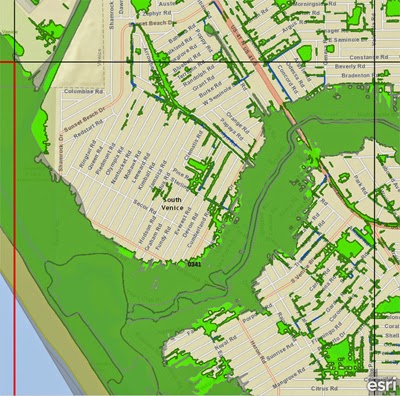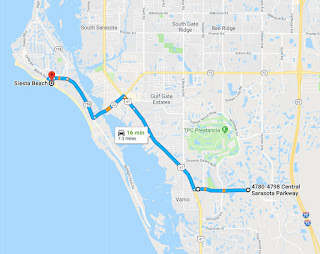Debunking Zillow
I've always been a little bit of a hater of Zillow. Deep down I always felt they presented data with a point of view against Realtors and home owners. Again, this is my opinion. You can agree or disagree.
I was playing around their site recently to see if they had anything of value I could incorporate on my own website. I checked out their Widgets and and started looking at their Median List Price widget.
It's my opinion that list prices have little to do with actual real estate values, and even less of a use in determining price trending in a particular area or neighborhood. Let's face it, you can list a property for any price you'd like, but the actual sales price determines real estate values. I do use list price data to gauge price negotiability and softness in demand, by comparing list price to sales price ratios, when working with buyers.
So, as I was evaluating their widget, I checked out the neighborhoods they listed, and tested Lido Key. What? List prices trending down 29%? Is demand that soft? Were the Realtors so far off the mark? Turns, out, this is hardly the case.
I invite you to go to my website and visit my analysis of Zillow in this particular case. The actual data from our MLS shows that sold values from Nov 2009-10 are down approximately 9% versus Nov 2008-09.
I was playing around their site recently to see if they had anything of value I could incorporate on my own website. I checked out their Widgets and and started looking at their Median List Price widget.
It's my opinion that list prices have little to do with actual real estate values, and even less of a use in determining price trending in a particular area or neighborhood. Let's face it, you can list a property for any price you'd like, but the actual sales price determines real estate values. I do use list price data to gauge price negotiability and softness in demand, by comparing list price to sales price ratios, when working with buyers.
So, as I was evaluating their widget, I checked out the neighborhoods they listed, and tested Lido Key. What? List prices trending down 29%? Is demand that soft? Were the Realtors so far off the mark? Turns, out, this is hardly the case.
I invite you to go to my website and visit my analysis of Zillow in this particular case. The actual data from our MLS shows that sold values from Nov 2009-10 are down approximately 9% versus Nov 2008-09.


Hey David - Sara from Zillow here. Even though you are a self-proclaimed "Zillow Hater" thanks for at least coming back to keep evaluating things.
ReplyDeleteGreat point on comparing Sold data to List data - and I fully agree you. In the NAR 2010 Home Buyers and Sellers report that just came out, it said that 57% of sellers reduced their price at least once. So it is number that is constantly moving, where as the sold market is what it is.
But there is a difference it the trend numbers we report (in this case 29%) and in looking at straight sold data - because our number is looking at all homes in the area, not the subset that experienced a transaction.
I think this difference is especially important to note in this year. According to the report mentioned above, 50% of home buyers this year were first time buyers. I think that has to be one of the highest percentages ever - due to the first time home buyer's credit? And usually first time home buyers buy lower priced home than second or third time buyers.
So if we look at the years prior, when first time buyer represented a smaller portion of overall sales - did the average home value really go down that much? Or did just the type of home bought affect that change? That is why I think a full market overview is an interesting number.
I am talking here in generalities - I certainly don't know your market at all, and I know real estate is very local. So I am sure the custom data you provide your clients is tremendously more accurate than ours. But I do know one thing -- As someone who owns two (bad) investment homes in FL though, I know the real estate buying/selling/leasing process is complicated (especially in these times). I wouldn't DREAM of going through it without professional representation because it is challenging to fully understand everything you need to know to transact right.
Sara, you highlight exactly why I believe your data misleads the public.
ReplyDeleteYou say you look at all numbers in an area, not just those that experience a transaction.
There is not one single part of the real estate industry that looks at the prices of unsold listed property. Not appraisers, not mortgage lenders, and certainly not real estate professionals when looking at comparable sales data. Listing prices are hardly, if ever, considered when determining the actual value of real estate in an area.
The way you present the data, showing a "year over year" trend with a line graph by month, does exactly what you said in your reply you are seeking to avoid: showing only the subset of properties that sold from month to month. The real estate industry looks at averages and medians for the entire year. I think this is highly misleading.
As far as first time buyers influencing sales prices, many of these first time buyers purchased distressed properties, not to mention the large numbers of investors who were not necessarily first timers. No one disagrees that the sale of these distressed properties has had an impact on actual market values.